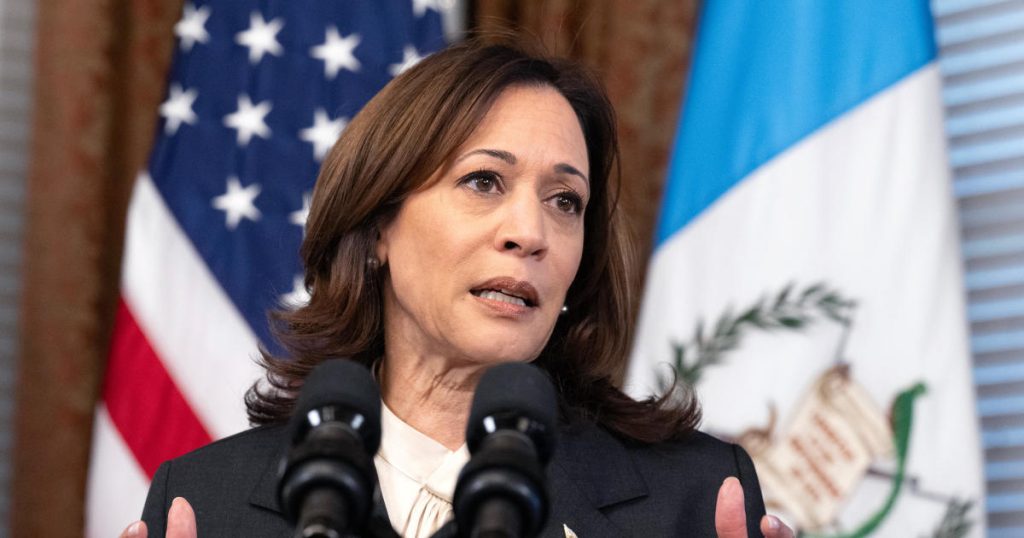Vice President Kamala Harris is heading to Tucson to criticize former President Donald Trump for his role in the restrictive abortion bans that have been enacted across the country after the Supreme Court’s decision to overturn the federal right to an abortion. Harris will point to Trump as the cause of this “health care crisis” and warn that a potential second Trump term would only exacerbate the situation, potentially leading to a national ban on abortion. While Trump has not openly endorsed a national ban, he has stated that the issue should be decided by individual states, indicating a potential willingness to support such measures.
In Arizona, the recent state Supreme Court decision upholding an 1864 law that essentially bans all abortions has put the state at the center of the national abortion debate. The upcoming election in Arizona, including a pivotal Senate race and a potential ballot measure on abortion rights in November, has turned the issue into a major factor that could sway the outcome. President Joe Biden narrowly won Arizona in 2020, and his administration has been vocal in its support for abortion rights, with Harris engaging in a “fight for Reproductive Freedoms” tour earlier this year. Harris’s visit to Tucson is part of a broader campaign rally that allows her to openly attack Trump and the Republican stance on abortion, drawing attention to the stakes involved in the upcoming election.
The Arizona Senate race to fill the seat left open by Sen. Kyrsten Sinema’s retirement has become a key battleground, with Republican candidate Kari Lake reversing her stance on the state’s abortion ban in the face of public pressure and accusations of political expediency. Democratic Rep. Ruben Gallego, also vying for Sinema’s seat, has called out Lake for what he sees as misleading statements and opportunistic positioning on the issue ahead of the election. The outcome of the Senate race, along with the potential ballot measure on abortion rights, will shape the political landscape in Arizona this fall and could have far-reaching implications for the broader debate on reproductive rights.
The intense focus on abortion in Arizona reflects the broader national debate over women’s reproductive rights and the ongoing efforts to restrict access to abortion services. With the Supreme Court’s decision to overturn Roe v. Wade, states have been emboldened to pass increasingly restrictive laws, leading to a patchwork of regulations that make access to abortion services increasingly difficult for many women. The battle over abortion rights has become a central issue in American politics, with both Democrats and Republicans staking out starkly opposing positions on the issue, drawing clear battle lines for voters to consider in the upcoming elections.
Harris’s visit to Tucson and her criticism of Trump’s role in shaping the current state of abortion laws reflect the high stakes involved in the fight for reproductive rights and the impact of these debates on the upcoming election. Arizona’s status as a battleground state and the recent decision to uphold the state’s restrictive abortion ban underscore the urgency of the issue and the potential consequences for women’s health and autonomy. As the battle over abortion continues to play out in Arizona and across the country, the outcome of these debates will have a lasting impact on the lives of millions of Americans and shape the future of reproductive rights in the United States.


